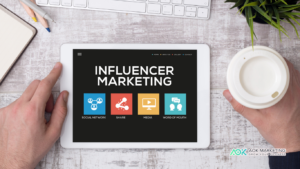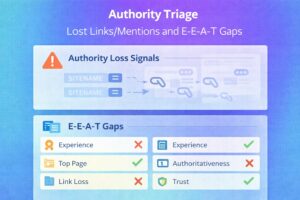If you’re not using influencer marketing, then this article might convince you to! By leveraging the reach, credibility, and engagement of influencers, companies can create marketing campaigns that feel personal and authentic. But why exactly is influencer marketing so effective? Several key factors come into play:

1. Authenticity: Building Trust Through Genuine Endorsements
One of the standout features of influencer marketing is its ability to foster authenticity, something that traditional advertising often struggles to achieve. Unlike polished brand ads, influencer content feels organic and trustworthy. Influencers are seen as real people, and their followers often form a relationship with them, making their endorsements feel more personal.
When an influencer promotes a product or service, it doesn’t feel like a sales pitch. Instead, it’s perceived as a recommendation from someone who has experience with the product. This authentic connection fosters trust, which is critical in converting potential customers into loyal buyers. Studies show that 63% of consumers trust influencers’ opinions of products more than what brands say about themselves.
Moreover, influencers often integrate products into their everyday lives, sharing how they personally use them. This real-world application adds another layer of authenticity and helps followers see the value of the product in their own lives. Authenticity is the cornerstone of successful influencer marketing because it humanizes the brand and makes it relatable.
2. Targeted Reach: Reaching the Right Audience
Another reason why influencer marketing is so effective is its ability to deliver highly targeted messaging. Unlike traditional advertising, which casts a wide net in hopes of catching a few potential customers, influencer marketing allows brands to connect with niche audiences that are more likely to be interested in their products or services.
Influencers typically specialize in particular areas, from beauty and fitness to tech gadgets and eco-friendly living. These influencers have followers who share those interests, creating a built-in, highly targeted audience for brands. For example, a skincare brand can partner with a beauty influencer whose audience is already interested in skincare products, ensuring their marketing message reaches the people most likely to engage with it.
This targeted approach improves the efficiency of marketing efforts, as brands don’t have to spend excessive amounts of time and money finding their audience. Instead, they can tap into an influencer’s established following, which helps ensure that the campaign delivers the right message to the right people at the right time.
3. High Engagement: Boosting Visibility and Interaction
One of the most significant benefits of influencer marketing is its ability to generate higher engagement compared to traditional brand accounts. Influencers often enjoy stronger engagement with their followers, who actively like, comment, share, and respond to their content. This interaction leads to a much higher chance of creating conversations around the brand’s product or service.
Brand accounts, while effective, often face challenges when it comes to engagement. Consumers are more likely to engage with content from an individual than from a faceless company. This is where influencers shine. Their personal touch and ability to communicate with their followers on a deeper level lead to much stronger engagement.
For brands, this higher engagement means increased visibility on social media platforms. Algorithms on platforms like Instagram, TikTok, and YouTube reward content that generates interaction, boosting its reach and ensuring that more people see it. This amplification effect means that brands not only benefit from direct engagement but also enjoy the organic reach that comes with a well-executed influencer campaign.
Moreover, engagement isn’t limited to comments and likes. Influencers have the power to spark discussions, answer questions, and even involve followers in product feedback, creating a more interactive and community-based experience. This type of direct interaction fosters stronger relationships between the brand and its target audience, leading to better long-term results.
4. Social Proof: Enhancing Perceived Value
One of the most powerful psychological factors behind influencer marketing is social proof. Social proof is the phenomenon where people follow the actions and choices of others, especially when they are uncertain about their own decisions. When an influencer endorses a product, they essentially lend their credibility to the brand, signaling to their followers that the product is worth trying.
The endorsement from a trusted figure creates an immediate sense of validation. If a follower sees an influencer they admire using a product, they are more likely to view it as high quality and worth purchasing. This effect is especially strong when the influencer has built a reputation for being honest and selective about the brands they work with.
Social proof can be even more impactful in today’s social media landscape, where followers often aspire to the lifestyles of the influencers they follow. By using the same products, followers feel connected to the influencer and, in turn, the brand. This sense of belonging and validation makes influencer marketing more effective than many other forms of advertising.
Additionally, the use of social proof in influencer marketing often leads to what’s known as the “bandwagon effect,” where more people start buying the product simply because they see others doing it. This snowball effect can significantly increase a brand’s customer base and boost its overall visibility in a crowded market.
5. Content Creation: Leveraging Creative Expertise
Influencers are not just conduits for brands to reach their target audiences—they are also content creators who bring their own unique style and creativity to campaigns. When a brand partners with an influencer, they’re not just getting access to that person’s audience—they’re also benefiting from the influencer’s ability to create engaging and relatable content.
Whether it’s an Instagram Story, a YouTube review, or a TikTok challenge, influencers have honed their content-creation skills to keep their followers entertained and informed. Their creativity adds immense value to a brand’s marketing efforts, as they can present the product in ways that resonate with their audience.
This also allows for greater flexibility in content formats. Instead of the brand controlling every aspect of the marketing message, influencers have the freedom to experiment with different types of content—whether it’s unboxing videos, tutorials, or behind-the-scenes glimpses. This variety not only keeps the audience engaged but also ensures that the brand’s message is delivered in the most effective way possible.
Conclusion: The Power of Influence
Influencer marketing’s effectiveness stems from its unique ability to blend authenticity, targeted reach, high engagement, social proof, and creative content. By tapping into these factors, brands can connect with consumers on a deeper, more personal level, creating lasting impressions and driving meaningful results.
As social media continues to evolve, so will influencer marketing. Brands that understand and leverage the full potential of influencers will find themselves better equipped to succeed in a competitive digital marketplace. The key lies in choosing the right influencers, crafting authentic campaigns, and focusing on building relationships with both influencers and their audiences.
About The Author
Khalid Essam
Khalid is the Chief of Staff at AOK. He collaborates with a team of specialists to develop and implement successful digital campaigns, ensuring strategic alignment and optimal results. With strong leadership skills and a passion for innovation, Khalid drives AOK’s success by staying ahead of industry trends and fostering strong client and team relationships.




